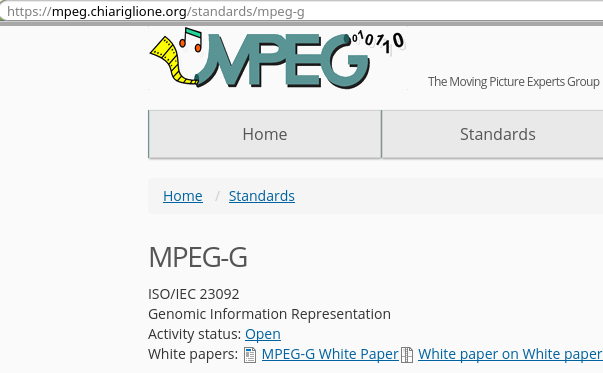

"You might find it interesting," a reader told us some days ago, pointing to this article and corresponding comments about MPEG-G, which relates to what we've been writing about the MPEG cartel.
I ended the last blog with the statement "history is resplendent with battles where a good PR campaign won the day". I truly wish this wasn't a battle. I engaged with MPEG-G from the moment I heard about it, submitting ideas to improve it, despite being instrumental in recent CRAM improvements. I had hopes of a better format.
I bowed out after a while, making rather weak excuses about work loads. However the honest reason I disengaged was due to the discovery of patent applications by people working on the format. I wanted nothing to do with helping others making profits, at the expense of the bioinformatics community. I regret now that I helped make the format that little bit better. I am guilty of being hopelessly naive.
I am not against commercialisation of software. I use plenty of it daily. Indeed I once worked on software that was sold on a semi-commercial basis, from which I personally benefited.
A commercial file format however is a different beast entirely. It touches everything that interacts with those files. Programs that read and write the format need to be licensed, adding a burden to software developers
I'm also not against patents, when applied appropriately. I can even see potential benefits to software patents, just, although the 25 year expiry is far too long in computing. 25 years ago the Intel Pentium had just come out, but I was still using an 8MB Intel 486 PC. It seems ludicrous to think something invented back then would only just be opening up for others to use without having to pay royalties. Holding a patent for that long in such a fast moving field is extreme - 5 to 10 years max seems more appropriate.